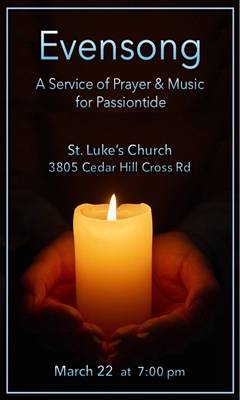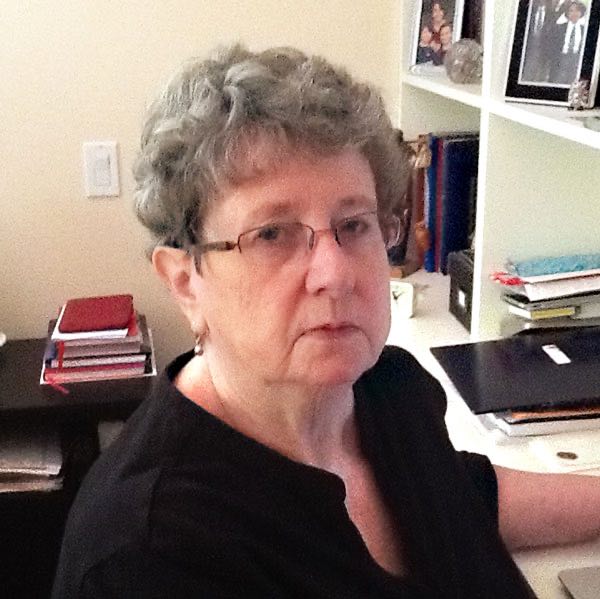I grew up in Halifax, N.S., in the 1940s, the sixth of seven children. We lived in the city until I was 15 years old, then the family moved about 25 miles outside Halifax, where my dad built a home for us and my parents lived until their passing. I have always gone to the Anglican Church. I went to Sunday school and joined the choir and youth group. In those days, we had rallies, where all the dioceses of the Anglican Church of Canada would march through the streets with banners flowing to gather for a day of sermons and prayers.
After finishing high school, I enrolled in what was then called vocational school and took a business course, which covered shorthand, typing and business machines. From there, I went to my first job as a stenographer for the Department of Education, in the adult education department. I was there for about three years before I became an employee of CBC, in the small business management training section of the information services department, as a secretary. Years later, after being away and returning to Canada, I worked with Sears Canada for 16 years, both as lead coordinator and as a decorating consultant.
After two years at CBC, I met my husband Mark, who had been taking his chartered accountant degree, and in 1967 we married and stayed in Halifax for a year. In 1968, we left for the West Indies with the firm Keats, Peat Marwick and Co. and stayed in Trinidad and St. Lucia for five years. Our son, the oldest of three children, was born there. We had our second child in Winnipeg, where we again worked with the firm for a year. Our third child was born in Calgary, where we lived for 27 years.
We are now retired on Salt Spring Island, where we live a very quiet and comfortable life. I first became interested in becoming a deacon after a synod where Nancy Ford and the deacons at the time put on a demonstration and film about deacons and their role in the church. I thought about it, then decided no! I had been on every committee and had been warden in the church on Salt Spring Island, so maybe this was just going too far in joining another facet of the church. But God had different ideas, because the idea just wouldn’t leave me. I decided to give it a try after being approved to enter the program.
I trained from 2010 to 2013, doing courses through the diocese, as well as taking two courses at the Vancouver School of Theology (VST): one with retired priest Harold Munn and one with the now-president of VST, Richard Topping.
From there, I became a postulant at St. Michael and All Angels in Chemainus. I worked alongside the people of Penelakut Island at the food bank, the neighbourhood house and the school (elementary) breakfast program. I was there for five years and made many good friends. I was asked to marry two couples of the Penelakut Tribe, which I did, one on the island and one in the church in Chemainus. This opportunity provided great inroads to getting to know a lot of the Penelakut people, and I enjoyed my work there immensely.
I was then moved by the bishop to work with the church in Duncan, where I am now entering my third year. Before the pandemic, I worked at the food bank and Warmland House. It is quite different, not only because of COVID-19, but also because the drug addiction and poverty problems are so intense there, I haven’t been able to make the same inroads in the same amount of time as I did in Chemainus. Being off for a year with the pandemic has put things behind too.
My ideal posting would to be to work amongst children and families, similar to the work I did in Chemainus. I am also on diocesan council, as well as being a representative for the Anglican Fellowship of Prayer.
I think the greatest challenge we face in the Anglican Church is letting go of the past and moving into the future and to what it is going to look like. Times and people have both changed, and technology has shown us how church can be and that people can and will adapt to it.
The most unusual sermon I have ever heard — and unusual is not the word I would use for it, but awakening sermon — was by Dr. Martin Brokenleg, when he told us what bishops face and how Bishop James Cowan even had death threats sent to him. This was during a time of change concerning same-sex blessings and the closing of some of the churches. Bishop Cowan was retiring, and Bishop Logan had just been elected. In fact, I, along with two others, was Bishop Logan’s first ordination.
On a Sunday morning in pre-COVID-19 times, because I live on Salt Spring Island, I have to be up at 4:30 a.m. to get ready to cross over to Vancouver Island on the ferry. The only ferry that will get me there on time is the 7:00 a.m. one, as the next ferry doesn’t go on Sunday until 9:15 a.m. These early mornings give me time to reflect and prepare me for the morning ahead.
This has been my work as a deacon and the work that Jesus and the disciples prepared us for.



